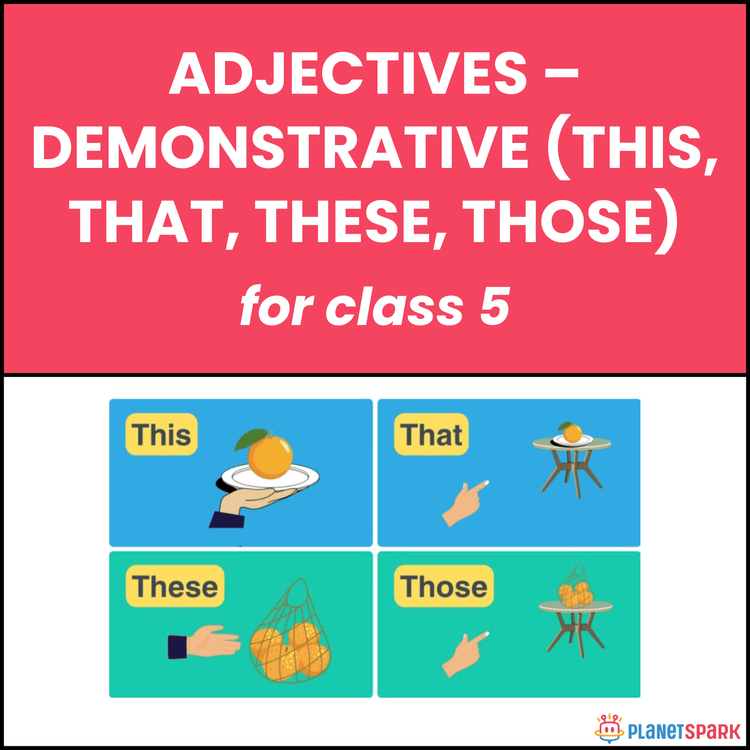Comparative Degree Examples in English Grammar for Beginners

In English grammar, adjectives help us describe and compare people, objects, or ideas. The degrees of comparison positive, comparative, and superlative make sentences clearer. The comparative degree is especially useful when comparing two things. For example, in “Riya is taller than Sita,” the adjective taller highlights the difference between them. Learning comparative degree examples is essential for beginners as it improves everyday communication, writing, and exam performance. This blog explains the rules with simple explanations and examples to help learners master comparative forms easily.
Comparative Degree Examples
The best way to understand grammar is through examples. Below are simple and clear comparative degree examples that beginners can use to practice. These cover short adjectives, long adjectives, and irregular adjectives.
1. Short Adjectives
Rohan is taller than Sohan.
This bag is cheaper than that one.
My house is bigger than yours.
The train is faster than the bus.
Her dress is shorter than mine.
2. Adjectives Ending in “-y”
She looks happier than yesterday.
Today is sunnier than last week.
My brother is busier than me.
This street is noisier than the one near the park.
Ramesh is luckier than Mohan.
3. Long Adjectives (use “more”)
This painting is more beautiful than that one.
English is more difficult than Hindi for beginners.
The sofa is more comfortable than the chair.
Reading is more interesting than watching TV.
A laptop is more expensive than a tablet.
4. Irregular Comparatives
His handwriting is better than mine.
This road is worse than the other one.
The river is farther than the lake.
She is less confident than her friend.
Today’s news is more important than yesterday’s.
5. Comparative Degree in Sentences
My school is bigger than your school.
This pen is more useful than a pencil.
The tiger is stronger than the lion.
This film is more popular than the last one.
Water is clearer than juice.
👉 These comparative degree examples show how we compare two nouns in everyday life. For beginners, practicing with short and simple sentences makes grammar learning easy and effective.

What is Comparative Degree?
In English grammar, adjectives are words that describe a noun. When we want to compare two people, places, animals, or objects, we use the comparative degree of adjectives. It helps us show how one thing is different from another.
For example:
A bicycle is cheaper than a car.
This book is more interesting than that one.
Rohan is taller than Aman.
Here, the words cheaper, more interesting, and taller are in the comparative degree.
There are three degrees of comparison:
Positive degree – describes one person or thing (e.g., tall, beautiful).
Comparative degree – compares two people or things (e.g., taller, more beautiful).
Superlative degree – compares more than two (e.g., tallest, most beautiful).
Among these, the comparative degree is the most common in daily conversations because we often compare two things in real life. By learning comparative degree examples, beginners can easily express differences in a natural and correct way.
Rules to Form Comparative Degree
Forming the comparative degree in English is simple once you know the rules. Adjectives change their form depending on whether they are short, long, or irregular. Below are the basic rules with examples:
1. Short Adjectives (one syllable)
For most short adjectives, add -er to form the comparative.
tall → taller (Ravi is taller than Mohan.)
fast → faster (This train is faster than the bus.)
small → smaller (My room is smaller than yours.)
2. Adjectives ending in “-y”
When an adjective ends with y, change y to i and add -er.
happy → happier (She looks happier today than yesterday.)
busy → busier (He is busier than his brother.)
3. Long Adjectives (two or more syllables)
For longer adjectives, we don’t add -er. Instead, we use more + adjective.
beautiful → more beautiful (This park is more beautiful than that one.)
comfortable → more comfortable (This sofa is more comfortable than the chair.)
expensive → more expensive (A laptop is more expensive than a tablet.)
4. Irregular Adjectives
Some adjectives do not follow the usual rules. Their comparative forms are unique.
good → better (Her handwriting is better than mine.)
bad → worse (This road is worse than the other one.)
far → farther/further (Delhi is farther than Jaipur from here.)
5. Always use “than” with Comparatives
Comparative degree usually needs the word than to make sense.
He is stronger than me.
This story is more exciting than the last one.
By remembering these rules, beginners can easily form comparative adjectives and use them correctly in sentences.

Common Mistakes in Using Comparative Degree
Beginners often make small but common mistakes while writing or speaking with comparative degree examples. Knowing these errors helps avoid confusion and improves grammar accuracy.
1. Adding “more” with short adjectives
Wrong: He is more taller than me.
Correct: He is taller than me.
2. Forgetting to use “than”
Wrong: This book is better.
Correct: This book is better than that one.
3. Mixing comparative and superlative
Wrong: She is the more intelligent girl in the class.
Correct: She is the most intelligent girl in the class.
4. Double comparatives
Wrong: This problem is more easier than before.
Correct: This problem is easier than before.
5. Using “less” incorrectly
Wrong: She is less taller than her sister.
Correct: She is shorter than her sister.
Make English easy and exciting for kids Join a PlanetSpark free demo session now.
Tips to Remember Comparative Degree Easily
Learning grammar becomes simple when you follow some easy tricks. Here are a few tips that will help beginners remember comparative degree examples quickly:
1. Focus on short and long adjectives separately
Short adjectives usually take -er (small → smaller).
Long adjectives usually take more (beautiful → more beautiful).
2. Memorize irregular forms
Some words change completely, like:
good → better
bad → worse
far → farther/further
Keep a small list of these irregulars and revise daily.
3. Always use “than”
Comparative sentences are incomplete without “than.” Example: This pen is better than that one.
4. Practice with daily life sentences
Try comparing things around you:
My room is cleaner than the hall.
Tea is hotter than coffee.
5. Learn through reading and listening
Notice comparisons in storybooks, newspapers, or English shows. Repeating them will help you use them naturally.
Exercises for Practice
To master grammar, practice is the key. Here are some simple exercises on comparative degree examples that beginners can solve to strengthen their understanding.
Fill in the blanks with the correct comparative form of the adjective given in brackets:
My bag is ___ (heavy) than yours.
This road is ___ (wide) than that one.
She is ___ (intelligent) than her brother.
Today is ___ (hot) than yesterday.
This story is ___ (interesting) than the last one.
Answers:
heavier
wider
more intelligent
hotter
more interesting
Rewrite the sentences using comparative degree:
My house is big. Your house is small.
→ My house is bigger than your house.The movie was good. The book was better.
→ The book was better than the movie.This chair is comfortable. That sofa is also comfortable.
→ That sofa is more comfortable than this chair.
👉 Solving these exercises regularly will help learners use comparative degree examples correctly in both speaking and writing.
Why Choose PlanetSpark for Learning Comparative Degree
Mastering English grammar, especially comparative degree, becomes fun and easy with PlanetSpark. We help children go beyond memorizing rules by practicing real-life examples, exercises, and interactive activities.
Personalized Learning: PlanetSpark provides tailored lessons to strengthen grammar, sentence formation, and vocabulary, ensuring every child progresses at their own pace.
Interactive Sessions: Engaging online classes make learning comparatives and other grammar concepts exciting with practical exercises and live practice.
Expert Mentors: Experienced teachers guide children through rules, common mistakes, and creative usage, building confidence in speaking and writing.
Flexible Learning: Students can attend online classes from home, making grammar practice convenient and consistent.
Give your child a head start in English with expert-led PlanetSpark classes Book demo today
Conclusion
The comparative degree in English grammar is one of the most useful tools for expressing differences between two people, objects, or ideas. By understanding the rules, practicing with simple examples, and avoiding common mistakes, beginners can easily form correct sentences.
From short adjectives like taller, smaller to long ones like more comfortable, more beautiful, and irregular forms like better, worse, comparative adjectives are everywhere in daily conversations. Practicing these comparative degree examples through exercises and real-life sentences will make learning more natural and effective.
Frequently Asked Questions
The comparative degree is used to compare two people, objects, or ideas in English grammar. It shows differences and usually ends with -er or uses more. Example: taller, smaller, more beautiful.
Yes, some simple comparative degree examples are: Ravi is taller than Mohan, This bag is heavier than that one, Today is sunnier than yesterday, This book is more interesting than the last one, Her handwriting is better than mine.
Comparative degree compares two things (She is taller than her brother), while superlative degree compares more than two things (She is the tallest in the class). Knowing this difference helps in using grammar correctly.
Short adjectives usually take -er (fast → faster), adjectives ending in y change y → i + er (happy → happier), long adjectives use more + adjective (beautiful → more beautiful), and irregular adjectives have unique forms like good → better, bad → worse.
Yes, than is essential in comparative sentences to show the difference. Without it, the sentence is incomplete. Example: This pen is better than that pen.
Learning comparative degree examples helps beginners express differences clearly, write and speak better, and build a strong foundation in English grammar. It is useful in daily conversations, exams, and writing tasks.
Download Free Worksheets
Personalized Communication Report
Record a video to get a AI generated personalized communication report for your child

Hi There, want to try these
tips for your child with
LIVE with our expert coach?
Let's check your child's
English fluency

